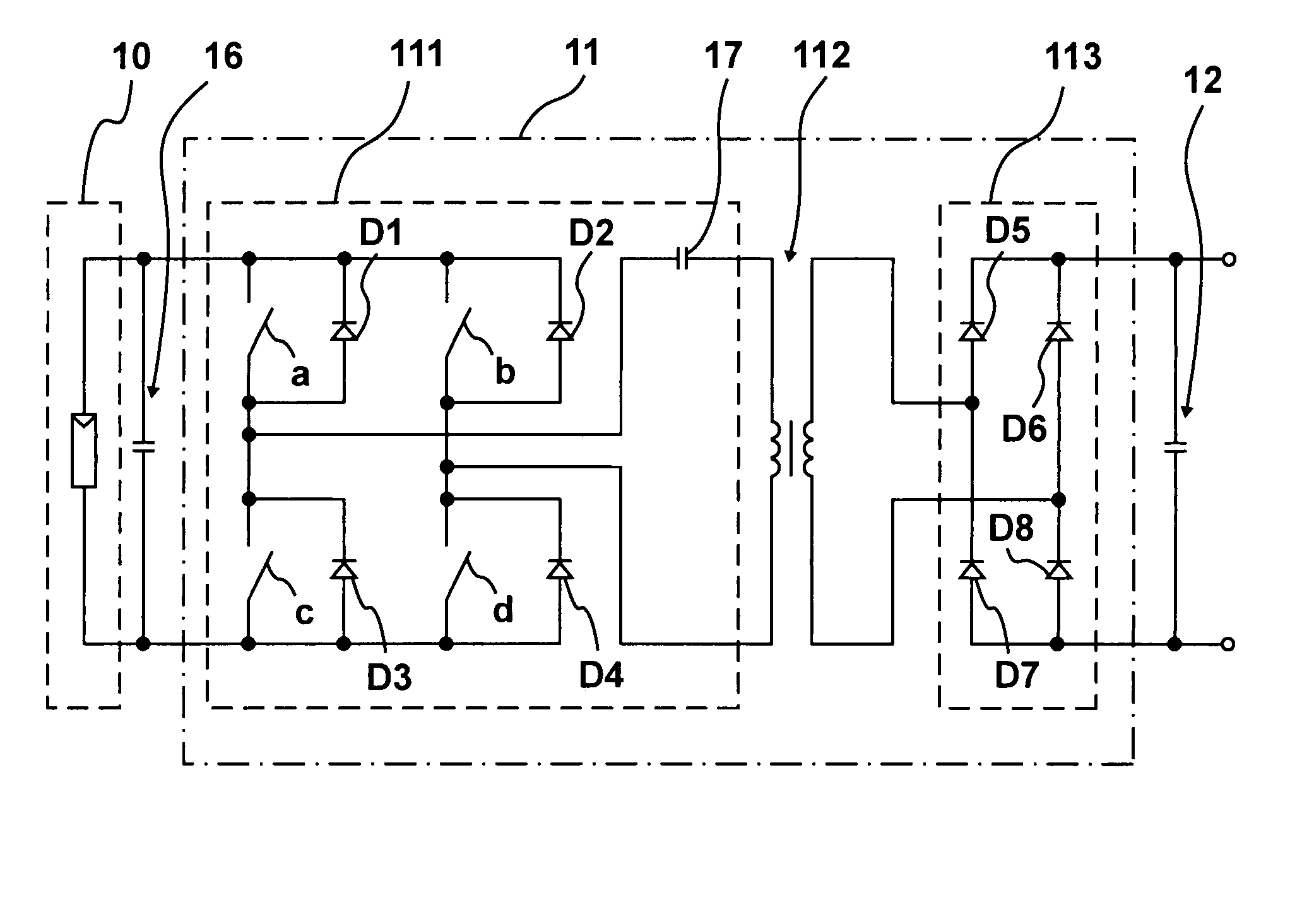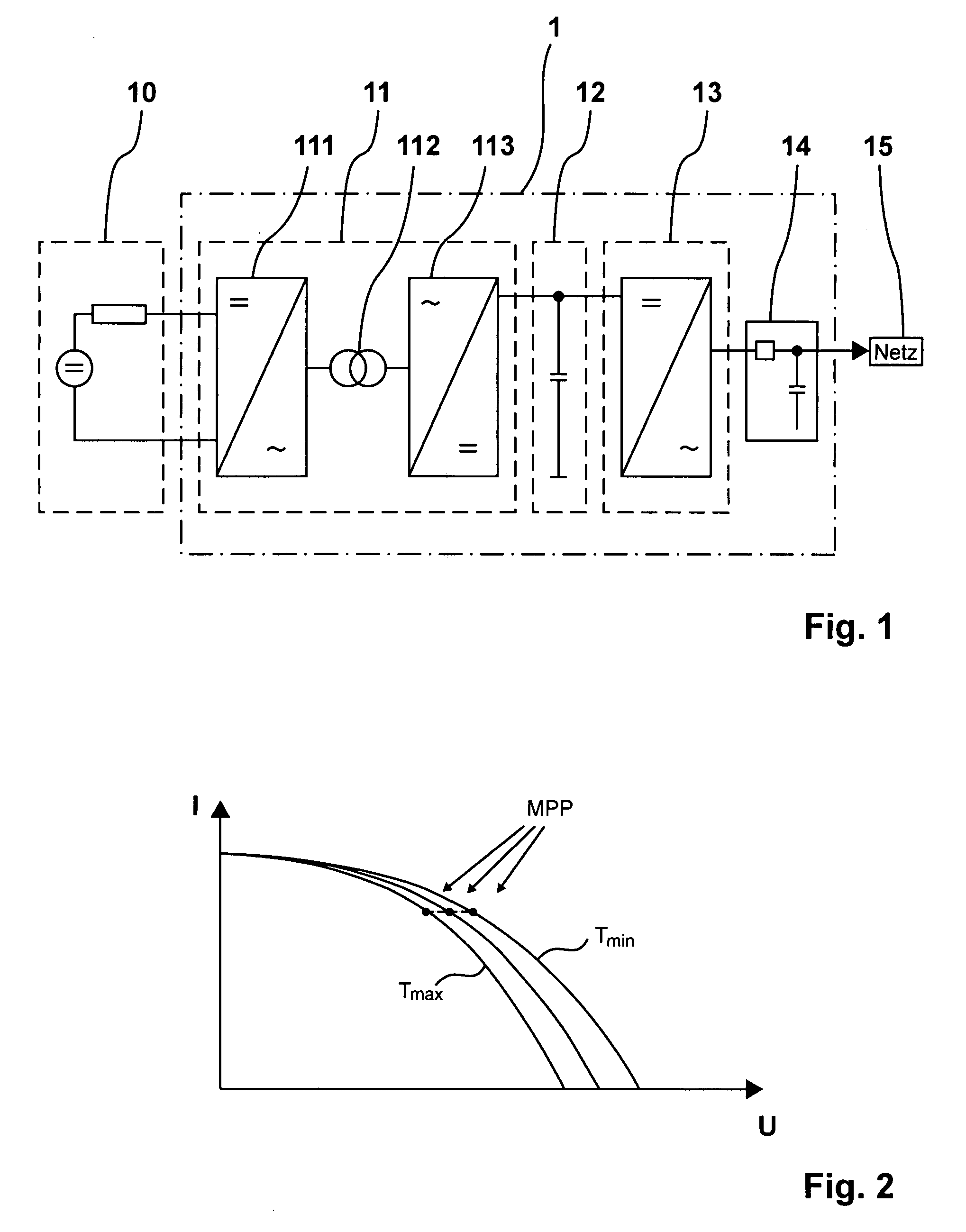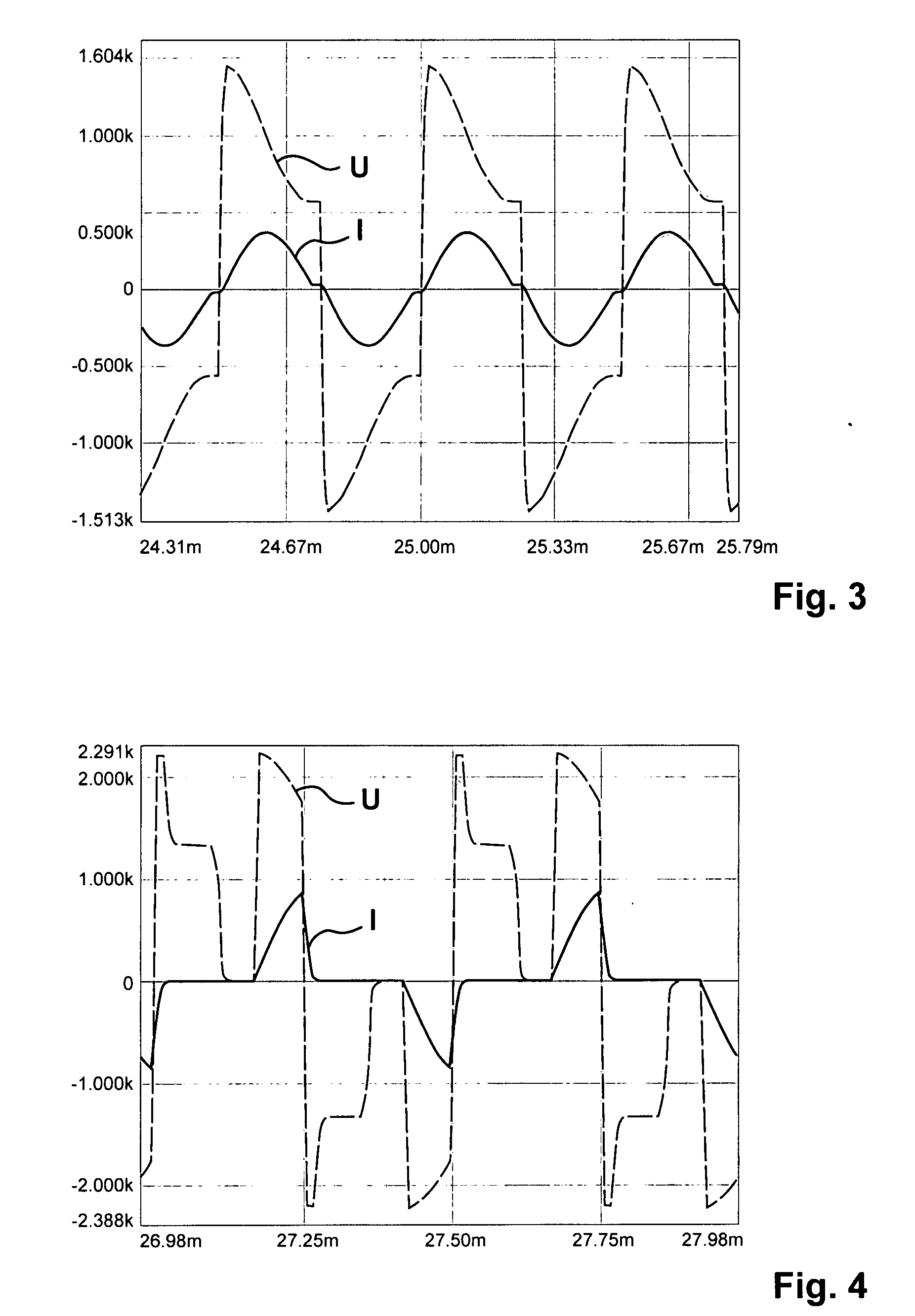Device for feeding electrical energy from an anergy source
a technology of electrical energy and anergy source, which is applied in the direction of electric variable regulation, process and machine control, instruments, etc., can solve the problems of increasing losses, increasing losses, and increasing losses of semi-conductor components, so as to reduce ripple current loads, the energy source of solar generators is particularly favorable, and the internal impedance is high
- Summary
- Abstract
- Description
- Claims
- Application Information
AI Technical Summary
Benefits of technology
Problems solved by technology
Method used
Image
Examples
Embodiment Construction
[0055]The fundamental function of the device 1 of the invention will be first explained referring to FIG. 1, reference being made to the FIGS. 5 through 7 as well.
[0056]The device 1 comprises a resonant converter or rather a resonant inverter 11 (DC / DC inverter) with a high-frequency inverter 111 and a high-frequency rectifier 113, both being connected together by a high-frequency transformer 112 connected therein between in order to provide for galvanic isolation. The converter or inverter 11 virtually is (without regen-capable inverter) a DC / DC converter and serves for voltage adaptation and galvanic isolation. The transformer 112 is disposed in the resonant inverter 11. A direct voltage output of the high-frequency rectifier 113 leads to a direct voltage intermediate circuit (intermediate circuit capacitor 12), as can be seen from FIG. 1. As the last stage, the device 1 has a regen-capable inverter 13 connected downstream of the direct voltage intermediate circuit (intermediate c...
PUM
 Login to View More
Login to View More Abstract
Description
Claims
Application Information
 Login to View More
Login to View More - R&D
- Intellectual Property
- Life Sciences
- Materials
- Tech Scout
- Unparalleled Data Quality
- Higher Quality Content
- 60% Fewer Hallucinations
Browse by: Latest US Patents, China's latest patents, Technical Efficacy Thesaurus, Application Domain, Technology Topic, Popular Technical Reports.
© 2025 PatSnap. All rights reserved.Legal|Privacy policy|Modern Slavery Act Transparency Statement|Sitemap|About US| Contact US: help@patsnap.com



